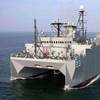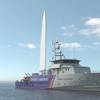Maintaining the rapid pace to apply the latest digital technology to its low-speed diesel and dual-fuel engines and corporate processes, engine designer Winterthur Gas & Diesel Ltd. (WinGD) has announced its participation in the Shipdex community.
The Shipdex organisation has introduced a version of the S1000DTM specification for digital data exchange applied in the aerospace and defence industry, and adapted to the marine sector. This S1000D specification standardizes electronic dissemination of technical data to equipment makers, shipyards and ship owners.
WinGD is committed to making all its technical documentation available to ship builders and operators in a digital form, which complies with the precisely defined and internationally established standards in Shipdex.
The primary scope of Shipdex is to allow manufacturers and customer to create a technical documentation repository where all the data are collected and managed under quality, configuration and version control.
“With important data, such as our Operation Manuals, Maintenance Manuals and Spare Parts Catalogue, converted into Interactive Electronic Technical Publications (IETP), we can compile, structure and deliver the data to shipbuilders and engine end-users much more rapidly and effectively,” explains Rudolf Holtbecker, Director Operations in WinGD.
WinGD completed its first project to make data on its engines accessible in accordance with Shipdex standards. “Our recently launched X52 diesel engine is our first new engine project in which we employed Shipdex™ standards for all technical documentation. We will now continue to apply the philosophy to all new engines and convert existing documentation for our complete engine portfolio with an overall target of having the complete portfolio accessible by mid-2020,” Rudolf Holtbecker adds.
With the application of Shipdex standards, WinGD plans to leverage the full potential of digitisation in the design, production and operation of its low-speed engines.












